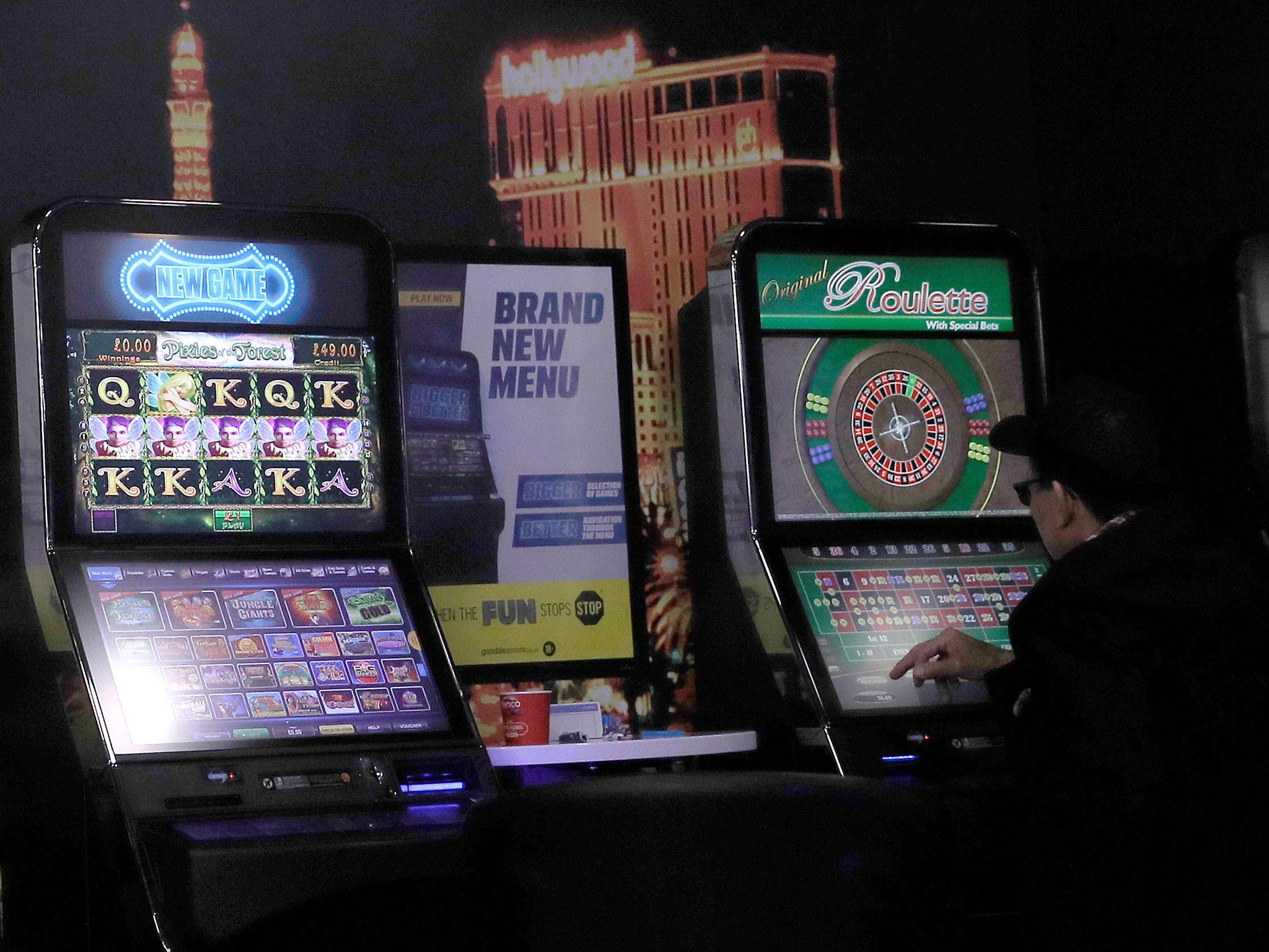Fixed-odds betting terminals cost taxpayers £210m a year, research finds
Addictive gambling machines cost £116m in hospital inpatient visits, £32m in secondary mental health services and £16m through criminal behaviour, study says

Fixed-odds betting terminals (FOBTs) cost taxpayers as much as £210m per year by placing extra demand on healthcare and other public services, new research has found.
The roulette-style betting machines, which allow gamblers to wager up to £100 every 20 seconds, cost the public purse £116m in hospital inpatient visits, £32m in mental health services and £16m through criminal behaviour, according to analysis by the Centre for Economics and Business Research (Cebr).
Problem gambling associated with the potentially addictive machines also results in £13m in additional housing costs and £30m through problems at work, the researchers estimated.
The study, which was commissioned by bacta, the trade association for the UK amusements sector, specifically looked at the damage caused by so-called B2 machines, which allow the highest stakes and are thought to cause the greatest damage.
Earlier this month, MPs were disappointed by industry regulator the Gambling Commission’s failure to recommend cutting maximum stakes on the machines to £2 per spin, instead pushing for a £30 limit.
The Government has committed to reducing the limit to between £2 and £50 but has yet to deliver its long-awaited final decision on the matter.
A £2 stake limit has previously been backed by 93 local authorities, the Royal Society for Public Health and the Church of England’s General Synod.
Bacta, which represents operators of fruit machines, juke boxes and amusement arcades, said a cut to £2 for FOBT stakes was necessary to protect public services.
“The government surely needs to act decisively putting all other suggested stake reductions aside and looking at the only option, a £2 stake,” said John White, chief executive of bacta
“Only by cutting FOBT stakes to £2 can we begin to make progress with the huge task of tackling problem gambling caused by FOBTs, one that starts with removing the most obvious incentives to harm.”
Bookmakers have lobbied to keep FOBT stakes as close as possible to the £50 maximum suggested by the government. They derive a large proportion of their revenues from the machines and have warned of staff lay-offs if customers can only make £2 bets.
Ladbrokes Coral, Britain’s biggest bookmaker, generated around £800m from gaming machines in 2016.
Join our commenting forum
Join thought-provoking conversations, follow other Independent readers and see their replies
Comments